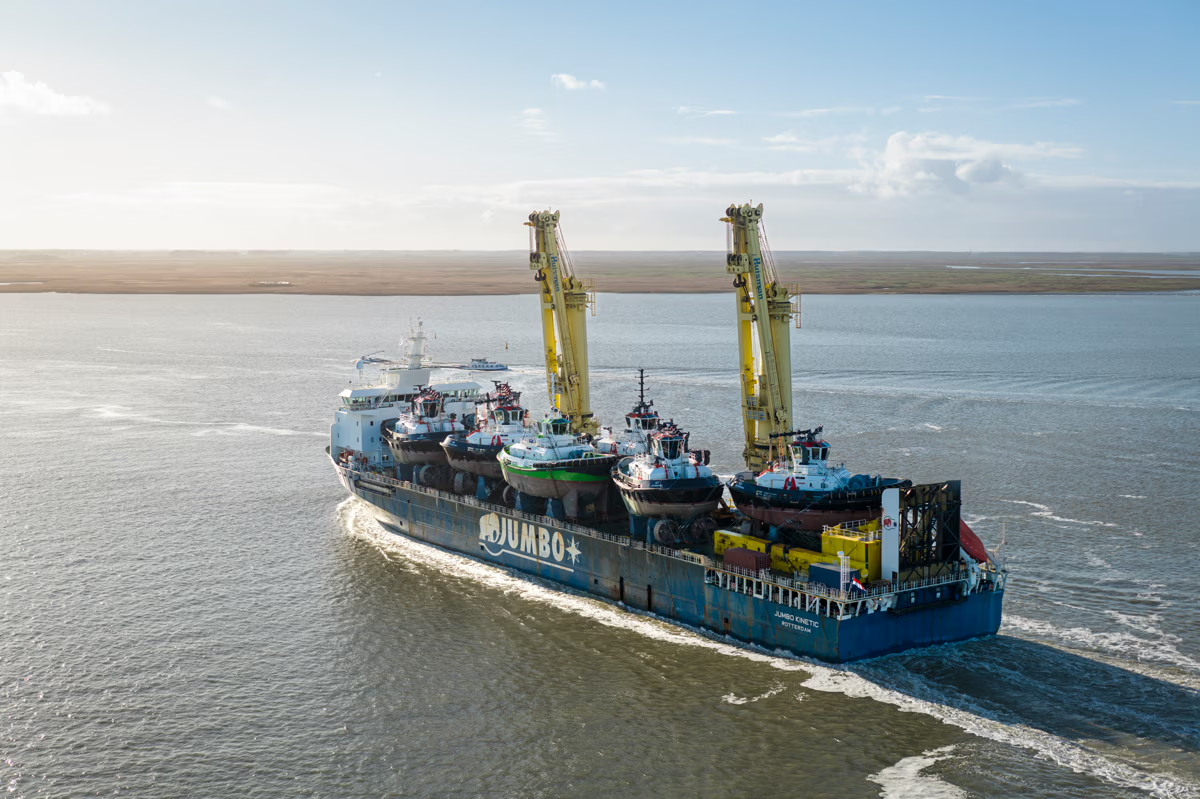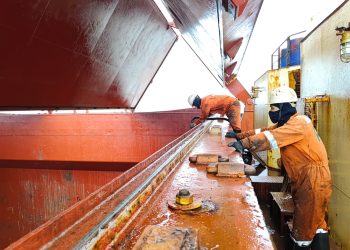Ball Clay from Malaysia
 The West of England P&I Club has issued Safety Alert on a recent cargo liquefaction incident in which entered vessel loaded a full cargo of Ball Clay inbulk at Lumut, Malaysia for discharge at Chittagong,Bangladesh.
The West of England P&I Club has issued Safety Alert on a recent cargo liquefaction incident in which entered vessel loaded a full cargo of Ball Clay inbulk at Lumut, Malaysia for discharge at Chittagong,Bangladesh.
Two days after sailing the vessel started to list toport after encountering bad weather off the coast of Myanmar.The vessel then rolled heavily the other way, resulting in a 15˚list to starboard.
When the cargo holds were checked it was found that the Ball Clay had liquefied. Fortunately, the vessel was not far from land and the master managed to anchor the ship in a sheltered location. The crew then spent several days shifting the cargo in order to reduce the list. Once the Ball Clay had been restowed and tthe weather had moderated, the vessel resumed passage at slow speed and reached Chittagong safely two days later.
The vessel appears to have had a lucky escape as anothership carrying Ball Clay from Lumut developed a serious list offThailand the same month and was abandoned with significantloss of life.
Recommendations
Vessels due to load Ball Clay in Malaysia are strongly advisedto notify the Managers beforehand so that a local surveyor canbe appointed to identify the location of the cargo, check theshipper’s cargo documentation and carry out “can” tests onrepresentative samples of the cargo before and during loading.
As with any other dry bulk cargo, loading should notcommence until the shippers have provided a cargodeclaration as required by the IMSBC Code. Irrespective ofthe cargo group declared by the shipper, Ball Clay fromMalaysia should be regarded as being a Group A cargo andthe shipper should be asked to provide test certificatesshowing that the moisture content of the material is less thanthe TML.
If the shippers fail to produce the cargo information requiredby the IMSBC Code, or do not provide test certificates, or ifthere are any doubts regarding the validity or accuracy of suchcertificates, or if a “can” test results in the appearance of freemoisture or fluid conditions, loading should be halted orpostponed as appropriate. In such an event the Managers should be notified immediately as it may be necessary to drawand send cargo samples to an independent laboratory to verifythe TML and moisture content. Additional advice from anexpert may also be required.
It should also be remembered that while a sample whichremains dry following a “can” test indicates that the moisturecontent is less than the FMP, the moisture content may stillexceed the TML. Determining the latter is only possible in alaboratory.
Further information may be found by reading relevant Safety Alert issued by the West of England P&I Club
Source & Image Credit :The West of England P&I Club


























































